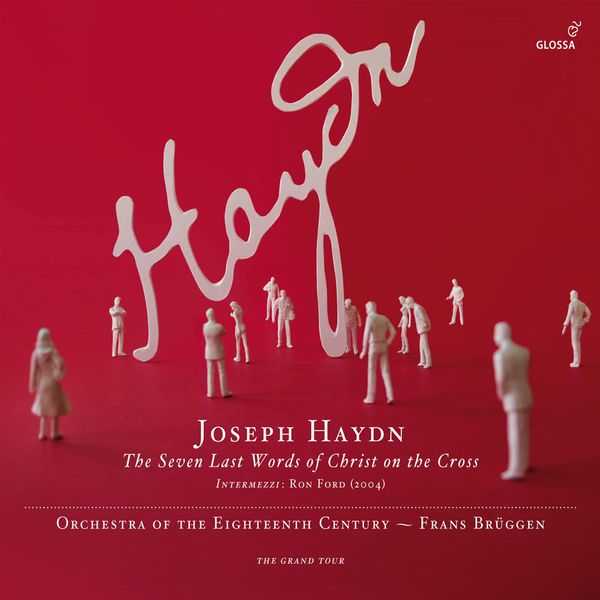
Composer: Franz Joseph Haydn
Orchestra: Orchestra of the 18th Century
Conductor: Frans Brüggen
Format: FLAC (tracks)
Label: Glossa
Catalogue: GCD921109
Release: 2009
Size: 196 MB
Recovery: +3%
Scan: cover
The Seven Last Words of Christ on the Cross, Hob.XX:1A (version for orchestra)
01. Introduzione. Maestoso ed Adagio
02. Sonata I. Largo (‘Pater, dimitte illis, quia nesciunt, quid faciunt’)
03. Sonata II. Grave e cantabile (‘Hodie mecum eris in Paradiso’)
04. Sonata III. Grave (‘Mulier, ecce filius tuus’)
05. Sonata IV. Largo (‘Deus meus, utquid dereliquisti me ?’)
06. Sonata V. Adagio (‘Sitio’)
07. Sonata VI. Lento (‘Consummatum est’)
08. Sonata VII. Largo (‘In manus tuas, Domine, commendo spiritum meum’)
09. Il Terremoto. Presto e con tutta la forza
Recorded live in Utrecht (Vredenburg) and in Leiden (Stadsgehoorzaal), Netherlands, in November 2004.
The commission came from the port city of Cádiz, in southern Spain. Joseph Haydn had been invited to compose orchestral passion music for performance during Holy Week. The Seven Last Words of Christ on the Cross, which contributed significantly to Haydn’s international reputation, also exists in versions for string quartet and piano, and as an oratorio, but the symphonic version presented here is the original. The composer himself considered this one of his finest works, and today, more than two centuries later, we can only concur. Haydn “translated” Christ’s last words, culled from the various gospels, into seven slow, sober and imposingly spiritual movements.
After Cádiz the work became removed from its liturgical context. In modern-day programming attempts have been made to reconstruct the original setting, but in a concert hall, spoken commentary only interferes with the music, and even more so on a recording. In respecting this objection, but at the same time desiring to create a meaningful space between the movements, Frans Brüggen invited the Dutch-American composer Ron Ford (Kansas City, 1959) to compose instrumental intermezzi. “This was a real challenge,” says Ford. “I looked for a balance between contrast and creating suitable connections. With this sort of commission you have to ask yourself: what haven’t we had yet? Haydn is punctual, logical, direct. What is missing is a sense of swell and ebb. I explored that route, with the sound of the Orchestra of the 18th Century in mind. Their breathing style of playing is unique in the world.” (Glossa)Under the steady hands of Frans Brüggen, the Orchestra of the Eighteenth Century performs the orchestral version of Haydn with sculpted balances, molded ensembles, and bright but warmly blended colors. Brüggen gives Haydn’s music the sense of seriousness and spirituality it needs to succeed, but never allows the work to become bogged down in its own solemnity. Brüggen has written that he was looking for brief musical interludes to take the place of the Gospel readings that were originally intended to separate the movements, and Ford’s intermezzi serve that function. The aesthetic viewpoint of the listener will determine whether or not they satisfactorily serve that function.